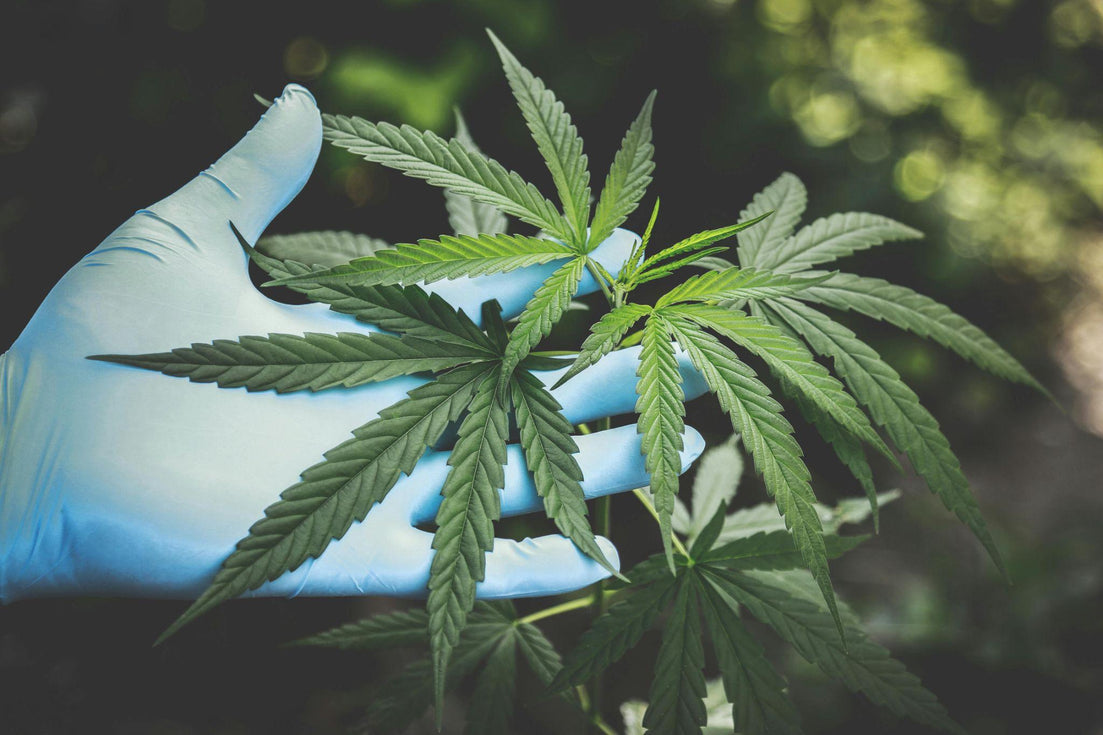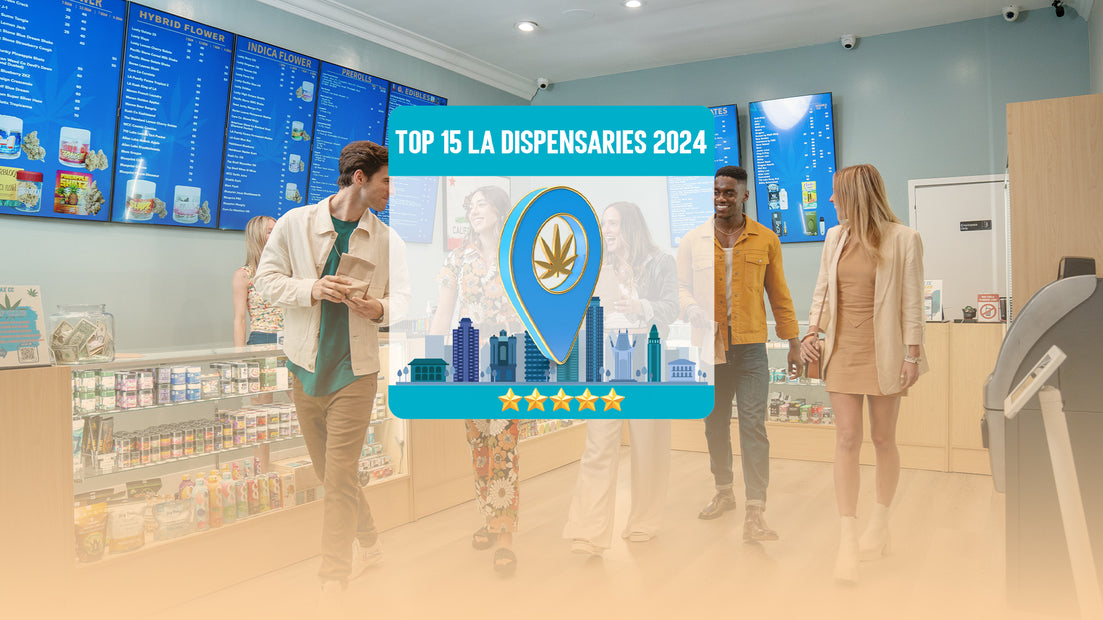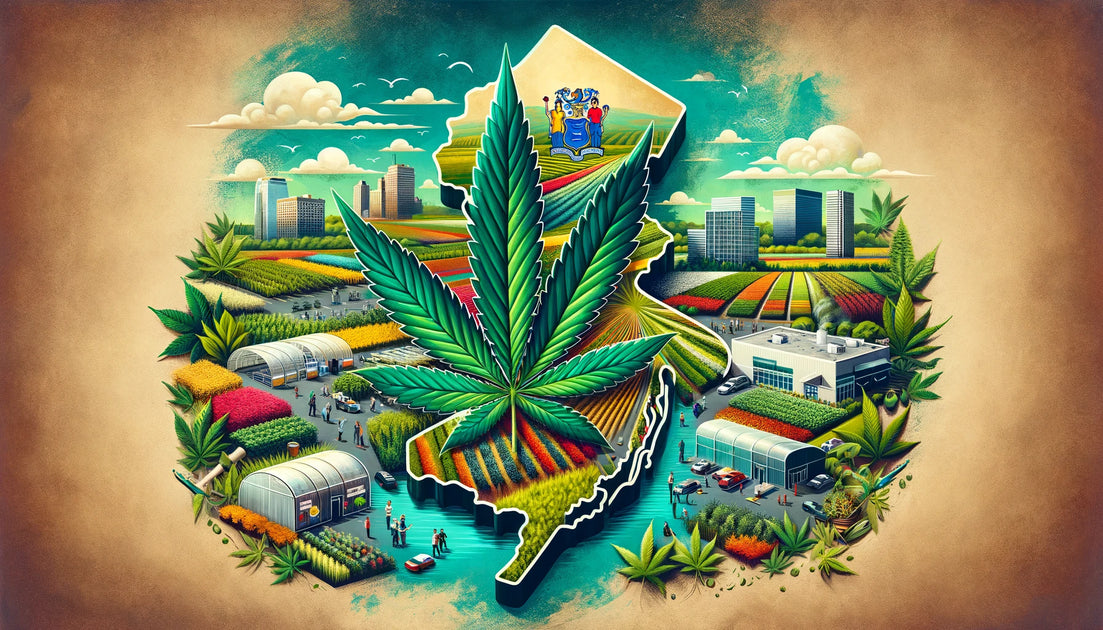Your cart is currently empty.

Have you ever wandered into the mysterious realm of cannabinoids, only to feel lost in a labyrinth of complex names and chemical structures? Let's take a step back and zoom in on one specific compound: Delta 11 THC. This minor cannabinoid has been stirring up quite the conversation lately. But why?
Different from its well-known cousin Delta 9 THC, Delta 11 offers an intriguing blend of uplifting effects with calming nature - like standing at the beachfront watching waves crash as the sun sets. Some users swear by it for anxiety relief, others praise its body high.
But we're not just chatting about Delta 11 THC effects and safety based on hearsay. Stick with us as we delve into the world of cannabis pharmacokinetics, examine different ways to enjoy it, discuss state regulations, and debunk widespread myths; you'll emerge well-informed.
Understanding Delta 11 THC: A Comprehensive Guide
The world of cannabinoids is vast and complex, but one minor player that's starting to turn heads in the cannabis industry is Delta 11 THC. This unique cannabinoid, with its distinctive chemical structure and potential benefits, has been gaining traction among cannabis consumers.
The Chemical Structure of Delta 11 THC
Delta 11 THC differs from other prominent cannabinoids such as CBD or delta-9-tetrahydrocannabinol (THC). It boasts a unique chemical structure, which gives it distinct properties and effects. As per key stats, while CBD possesses only one cyclic ring in its molecule (1), delta-9-THC contains two (2) whereas Delta 11 THC consists of three cyclic rings (3).
This means that despite being derived from the same hemp plant like other forms of THC compounds found naturally occurring within the Cannabis sativa L., this form behaves differently when consumed because it interacts uniquely with our body's cannabinoid receptors.
The Conversion Process from CBD to Delta 11 THC
To produce delta varieties like this trace cannabinoid including delta-, an intricate process involving heat or chemical catalysts converts cannabidiol into these new forms. In case you are looking forward to buy delta products remember they were once simply non-intoxicating CBD molecules transformed under high temperatures.
This method opens up a range of possibilities for developing different kinds of thc products ranging from vape cartridges loaded with potent extracts for inhalation all the way down to edible thc gummies carrying milder doses suitable even for beginners venturing into trying cannabis products.
However, the legal status of these cannabinoids is not uniformly recognized at a federal level. Before you decide to purchase any Delta-9 THC products, it is important to be aware of the varying regulations among states such as Alaska, Arizona, Arkansas and Colorado.
Before you start browsing for options or place an order with free shipping included it's always a good idea to check your local laws pertaining to access Delta THC in any form whether natural phytocannabinoid or synthetic cannabinoid.
Let's explore the realm of cannabis, where Delta 11 THC is emerging as a new player. Its distinct three-ring chemical structure sets it apart from other cannabinoids when taken in. Turning CBD into this lesser-known cannabinoid requires heat or chemicals, paving the way for different THC items like vape cartridges and edibles. But don't forget - laws differ across states so always double-check your local rules.
The Psychoactive Effects of Delta 11 THC
Delta 11 THC, while not as well-known as its siblings Delta 9 and Delta 8, is beginning to attract attention from cannabis consumers. This minor cannabinoid's unique chemical structure contributes to the psychoactive effects it produces.
A common question among users is how strong delta forms of THC are compared to one another. The intensity debate around delta compounds isn't black and white; several factors influence their impact, including individual tolerance levels and consumption methods.
The Intensity Debate Around Delta 11 High
While there’s anecdotal evidence suggesting that the high produced by Delta 11 may be less intense than other forms of THC, concrete data on this subject remains elusive. However, it's generally agreed upon that like other cannabinoids, such as CBD or CBG (cannabigerol), a compound’s effect can vary widely between individuals due to differences in body chemistry.
Differences in effects might also stem from whether you're using naturally occurring versions found in hemp products or synthetic cannabinoid variations. It's essential to take into account that everyone's experience will be significantly distinct depending on a range of elements from genetics through to diet and lifestyle.
There have been reports suggesting uplifting effects after consuming this variant which may help with anxiety relief because of its calming nature. But again, user experiences tend towards being highly subjective when discussing comparative benefits between different cannabinoids like CBD versus THC form derivatives including delta-9 or -8 along with our focus here: Delta-11THC.
Potential Lasting Effects
Delta 11 THC, like its more well-known counterparts, interacts with the body's endocannabinoid system (ECS), specifically targeting cannabinoid receptors. This interaction is what gives rise to the compound’s psychoactive effects. However, it should be noted that compared to Delta 9 THC, users have reported experiencing a clearer-headed and less anxious high.
For long-term effects, it's important to be aware of the potential implications.
Delta 11 THC, a lesser-known cannabinoid sibling to Delta 9 and Delta 8, offers unique psychoactive effects. While user experiences can vary due to factors like body chemistry and lifestyle choices, many report a less intense high with calming benefits potentially useful for anxiety relief. Remember though - everyone's experience differs.
The Legal Landscape for Delta 11 THC
Unraveling the legalities of Delta 11 THC can feel like navigating a labyrinth. Navigating the purchasing process for Delta 11 THC can be more complex than expected, due to different laws in each state even though it is federally legal.
State Restrictions on Delta 11 Products
Several states have restricted or banned delta products altogether. For instance, Arizona and Arkansas, two traditionally conservative states when it comes to cannabis law, currently have strict regulations in place regarding delta compounds including Delta-11.
In contrast, Colorado and Delaware are among those with looser restrictions on such cannabinoids. They allow residents to access delta products relatively freely due to their progressive stances on hemp plant derivatives and other naturally occurring substances found within them.
These varying laws mean that where you live dictates what type of cannabinoid receptors you're legally allowed to tickle with your favorite vape cartridges or THC gummies - not exactly straightforward.
Federal Law vs State Law: A Delicate Dance
The clash between federal law – which permits certain hemp-derived items (thanks Farm Bill.) – and stringent state-level bans results in an ambiguous space for many consumers seeking anxiety relief through cannabis products.
This tension isn't unique though; we've seen this dance before during alcohol prohibition in the early part of last century. It’s as if history is repeating itself but instead of bootlegged moonshine being transported across county lines under cover of darkness, now folks are shopping online trying their luck at free shipping offers from out-of-state dispensaries selling everything from disposable vapes loaded up with potent extracts right down to calming, high-quality Delta 11 THC oils.
For instance, it’s common to find listings for products that promise uplifting effects while also noting in the fine print that they can't be shipped to certain states due to their laws. This could certainly leave you scratching your head and possibly reconsidering moving states.
The Grey Area: Risk vs Reward
Walking through this complex legal maze feels like crossing a minefield with your eyes closed - one misstep, and it could all go sideways. So, don't hurry off to purchase delta just yet.
Decoding Delta 11 THC's legal framework feels like solving a puzzle. While federal law gives it a thumbs up, state laws may beg to differ, imposing their own rules. Your location could make snagging products with this ingredient tough or even out of reach. The tightrope walk between national and local laws turns shopping for these cannabis spin-offs into an adventure in dodging surprise hurdles.
Safety Considerations for Delta 11 THC Consumption
With the rise of various THC products, safety is paramount. It's no different with Delta 11 THC, a naturally occurring trace cannabinoid found in the hemp plant. As this compound gains traction among cannabis consumers, understanding its potential effects and safe usage becomes critical.
Given that anecdotal evidence plays a significant role in shaping our knowledge about these cannabinoids, it's crucial to tread carefully until more scientific research emerges.
The Importance of Transparent Safety Testing
A key factor to ensure your peace of mind when exploring new compounds like Delta 11 is transparent safety testing. Testing for safety can give us confidence that no hazardous elements are present in cannabis items. It can help weed out low-quality goods from trusted retailers offering high-quality delta-THC options.
Purchasing from sellers who offer free shipping does not automatically mean their product quality matches up. So make sure you buy delta-THC items only from reputable sources that provide detailed lab reports on their website. Lab tests should clearly outline if any synthetic cannabinoids have been used as they could lead to unwanted side effects and lasting impacts on your health.
This might seem daunting at first but remember: Knowledge empowers us.
- In Colorado, Delaware, Arkansas, Arizona, and Alaska alone, there has been an increase by nearly 30% in demand for such test results over the past year (Stat Source).12
- An estimated two-thirds of all CBD and other hemp-based products do not meet label claims (according to a Penn Medicine study), making the need for transparent testing even more vital.13
Delta 11 THC, like its delta-9 and delta-8 counterparts, can cause psychoactive effects if misused or taken in excess. Even though it may offer a soothing feel and potentially ease anxiety according to some folks' experiences, overdoing it or improper use could lead to problems.
Delta 11 THC, much like its cannabinoid cousins, is getting quite a buzz. But remember, safety first. Always go for goods from sellers who are upfront about their lab results - don't just fall for the free shipping hook. This way you steer clear of any sketchy stuff in your cannabis products. Just bear in mind, while Delta 11 might help chill you out...
The Metabolization of Delta 11 THC
Delta 11 THC, like other cannabinoids, undergoes a unique metabolic process in the body. Understanding this process can help us anticipate potential implications for drug testing.
The Journey from Consumption to Excretion
Once consumed, Delta 11 THC starts its journey through our system. The absorbed Delta 11 THC is taken up into the bloodstream and sent to various areas of the body, such as cannabinoid receptors in the brain and immune cells.
This metabolite then goes through an enzymatic breakdown within your liver where it gets transformed into several compounds. One noteworthy compound is hydroxy-THC – which also shows up on drug tests as a marker for recent cannabis consumption.
Implications for Drug Testing
Folks often question whether consuming Delta 11 THC could lead to a positive result on a drug test. The answer isn't simple because it depends largely on two factors: individual metabolism rates and detection thresholds used by specific tests. Studies suggest that certain forms of THC may potentially be detectable longer than others due to their unique chemical structure - making them stick around longer in your system before being excreted.
In most cases though, traditional urine-based drug screenings look specifically for "THC-COOH", which is not produced when you consume delta variants like D8 or D11; hence you might escape notice.
Detecting Hydroxy-THC: A Game of Thresholds?
A typical threshold level considered positive by many labs lies between '50 ng/mL' (nanograms per milliliter) to '15 ng/mL'. The levels of hydroxy-THC, the primary metabolite called into question during drug testing, can vary significantly based on factors like frequency and quantity of use, individual metabolism rates and body mass index (BMI).
Remember, folks who only use occasionally are less likely to show a positive result compared to those using heavily or often. However, this isn't a guarantee; it is possible for occasional users to still test positive.
When you take Delta 11 THC, this special cannabinoid hits your bloodstream and goes to different parts of your body. Its byproduct, hydroxy-THC, can pop up on drug tests. But it's not black and white whether using Delta 11 THC will make you fail a test - it hinges on how fast your body processes stuff and the sensitivity levels set by the tests.
Conclusion
Decoding the world of cannabinoids isn't a walk in the park. But with us, you've journeyed through Delta 11 THC's unique chemical structure and learned about its conversion from CBD.
You discovered how it dances on your cannabinoid receptors to create uplifting effects and calming nature - quite unlike its cousin Delta 9.
The legal landscape? It varies by state but we highlighted some key points for you to consider when purchasing these products.
Safety testing is crucial. You can now spot red flags better than before! Plus, you're armed with knowledge about metabolization that might just save a positive drug test result one day!
All this information is critical when discussing Delta 11 THC effects and safety. With this newfound understanding, navigating the cannabis industry should be less daunting as ever!



